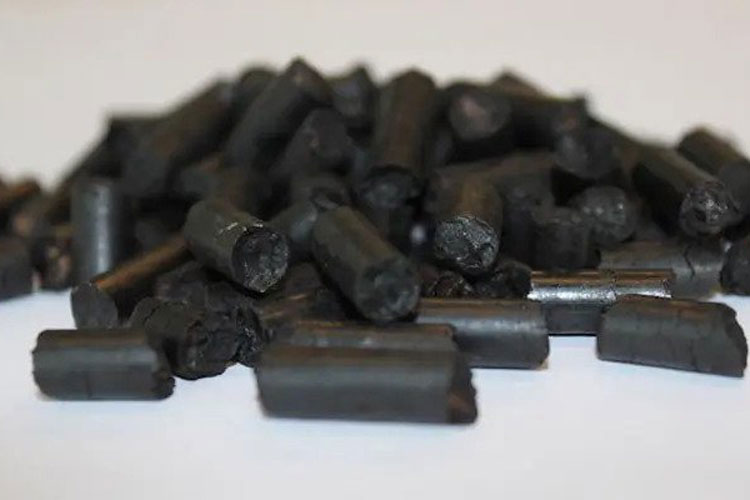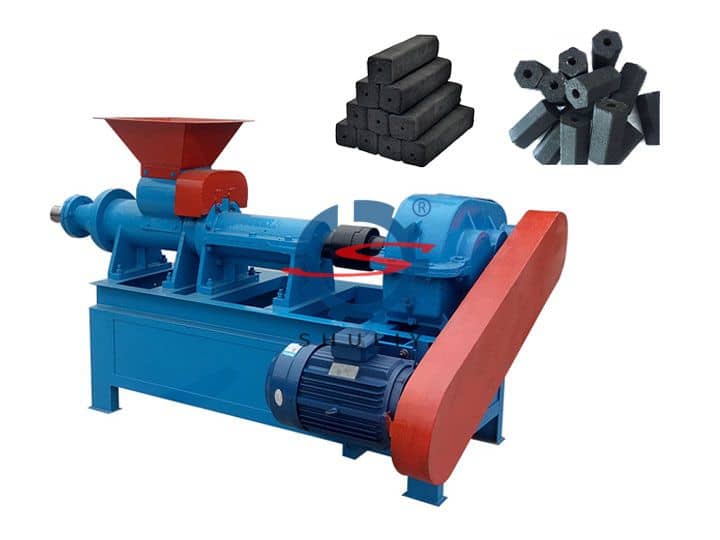Bio Coal Briquettes: A Sustainable Alternative to Fossil Fuels
The increasing demand for energy, coupled with the depletion of fossil fuel reserves, has led to the need for alternative and sustainable sources of energy. Bio coal briquettes have emerged as a promising alternative to fossil fuels due to their numerous advantages, including their renewability, reduced greenhouse gas emissions, and affordability. In this article, we provide an overview of the definition, applications, raw materials, manufacturing process, advantages, and challenges of bio coal briquettes.
What is Bio Coal?
Bio coal is a type of solid fuel that is made from organic materials such as agricultural waste, forestry residues, sawdust, and other biomass waste materials. It is produced by compressing and densifying these materials into briquettes, which have a high energy content and can be used as a replacement for traditional fossil fuels like coal. Bio coal briquette is considered a renewable and sustainable source of energy, as it is made from waste materials that would otherwise be discarded or burned, contributing to air pollution and greenhouse gas emissions.

What is the Use of Bio Briquette?
Bio briquettes have a wide range of applications, including:
Heating and cooking: Bio briquettes can be used as a source of fuel for heating and cooking in households and industries.
Electricity generation: Bio briquettes can be burned in power plants to generate electricity, either alone or in combination with other fuels.
Industrial applications: Bio briquettes can be used as fuel in various industrial processes, such as the drying and curing of tobacco, tea, and coffee.
Agricultural applications: Bio briquettes can be used as a source of fuel for agricultural machinery and equipment, such as tractors and pumps.
Environmental benefits: Bio briquettes are a renewable and sustainable source of energy, which can help reduce reliance on fossil fuels and contribute to the reduction of greenhouse gas emissions and deforestation.
Bio Coal Briquettes Raw Material
Bio coal briquettes can be made from a variety of organic materials, such as sawdust, wood chips, agricultural waste, forestry residues, and other biomass waste materials. The choice of raw material will depend on its availability, cost, and the desired characteristics of the briquettes.
Bio Coal Briquettes Manufacturing Process
Bio coal briquettes are produced from biomass sources such as agricultural waste, forestry residues, and industrial waste. The production process involves the grinding of the biomass into fine particles, which are then compressed into briquettes using a binder. The binder can be made from materials such as starch, molasses, or lignin. The briquettes are then dried to reduce their moisture content and improve their combustion efficiency.

Advantages of Bio Coal Briquettes
Renewable Energy Source:
Bio coal briquettes are a renewable source of energy, as they are produced from biomass sources that can be replenished through sustainable practices such as afforestation and agroforestry.
Reduced Greenhouse Gas Emissions:
Bio coal briquettes have lower greenhouse gas emissions compared to fossil fuels, as the carbon dioxide emitted during their combustion is offset by the carbon dioxide absorbed by the biomass sources during their growth.
Affordability:
Bio coal briquettes are more affordable than fossil fuels, as the raw materials used in their production are often waste products that would otherwise be disposed of.
High Energy Density:
Bio coal briquettes have a high energy density, meaning that they contain a significant amount of energy per unit of volume. This makes them a more efficient source of energy compared to biomass in its natural form.
Challenges of Bio Coal Briquettes
Production Cost:
The production of bio coal briquettes can be more expensive compared to fossil fuels, as it requires more energy and resources to process the biomass into briquettes.
Limited Availability of Raw Materials:
The availability of biomass sources for the production of bio coal briquettes can be limited in some regions, especially in areas with high population densities and limited land resources.
Lack of Standardization:
The lack of standardization in the production of bio coal briquettes can result in variations in their quality and combustion efficiency.
Storage and Transportation:
Bio coal briquettes require special storage and transportation facilities to prevent degradation and maintain their quality.
Conclusion
Bio coal briquettes have emerged as a promising alternative to fossil fuels, offering numerous advantages such as renewability, reduced greenhouse gas emissions, affordability, and high energy density. However, their production and use also pose several challenges, including production cost, limited availability of raw materials, lack of standardization, and storage and transportation requirements. Despite these challenges, bio coal briquettes have the potential to play a significant role in the transition to a more sustainable and renewable energy future.
Shuliy group provides a complete bio coal briquette production line. It can turn biomass material into quality charcoal briquettes. A small investment and huge return. If you want to start your biomass charcoal making business, contact us and start now.
